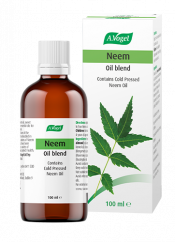1. Hydrate, hydrate, hydrate
Yes, I know. I’ve spoken about this multiple times now but I really can’t hammer home the importance of drinking plenty of fluids enough. Not only is it essential for a healthy digestive system and maintaining the health of your skin, drinking plenty of water will also decrease your risk of developing dry cuticles. This is extremely important as your cuticles work to protect your nails and, if they’re dry, it can make it easier for bacteria to penetrate this area, possibly resulting in an infection!
If you’re really keen to up your water intake, you could try eating fruit and vegetables with a high water content such as cauliflower, peppers, spinach, watermelon and strawberries. This will not only keep you hydrated but will boost your vitamin intake at the same time!
2. Good food for good nails
Your nails, just like every other part of your body, need the right balance of nutrients to function properly. In the case of your nails, protein is especially important which makes sense when you think about it. After all, nails are made up of a natural protein called ‘keratin’ so adding more protein-rich foods such as soy, eggs, fish and beans to your diet can enhance the strength of your nails and prevent them from breaking and splitting.
Essential fatty acids, such as those found in almonds or avocado, are also important for strengthening your nails. If you’re not getting enough omega-3 for example, your nails can easily become dry and brittle – even eating as few as 6 almonds a day may have a positive impact on your nail health.
Ensuring that you have sufficient magnesium in your diet to allow your calcium intake to be absorbed effectively is important. If your diet doesn’t contain plenty of wholegrains, nuts, dried fruit, and seeds (good sources of magnesium) then it may be a good idea to take a supplement.
3. Moisturising nail treatments
Keeping your nails well moisturised is crucial to their overall health which is why I highly recommend investing in a good hand and nail cream. When you use a hand cream, don’t forget to rub it into your nails and cuticles too. Many people often just concentrate on the palms and back of their hands and forget their fingers, nails and cuticles which also need lots of moisture.
There are lots of other natural ways to moisturise your nails and cuticles too to stop them from drying out and splitting. You can protect your nails and strengthen them by rubbing almond oil, olive oil or Neem Oil into them daily. The oil penetrates the skin and nail, to help repair any damage and soften your nails and cuticles. All you need to do is massage the oil into the nail and cuticle area in small, circular motions until fully absorbed.
Another good tip is to warm the oil as the heat helps speed up absorption Make sure it’s not too hot though, you don’t want to burn your fingers! As a weekly treat, soak your nails in the warm oil for 10 to 15 minutes to help keep them soft and supple.
4. Protect your nails from water
Wearing cotton-lined rubber gloves when your hands are in water, such as when doing the dishes or washing the car, can protect your nails. If your nails are submerged in water for a long time, they absorb a lot of water, then contract as they dry out, damaging your nails.
Washing your hands can also rob your nails of vital oil and moisture, resulting in weak, brittle nails. It’s also important to consider the types of products you are using on your hands during the day – washing up liquids, soaps and cleaning agents can not only take a toll on your skin, but your nails too. That’s why it might be a good idea to consider more natural alternatives.
Remember to always moisturise after you wash your hands to replace this moisture and don’t forget to pay attention to your nails and cuticles.
5. A natural solution for discoloured nails
A great natural way to get rid of discoloured nails is to scrub them with a slice of lemon. This handy little trick will help get rid of stains and gently buff your nails too. Soaking your nails in apple cider vinegar can also help brighten nails.
6. Practice good nail hygiene
Regular nail clipping and filing is essential to a well-groomed look. Use sharp manicure scissors or clippers. Trim your nails straight across, then round the tips in a gentle curve. Filing your nails is important to prevent them from splitting and weakening and this is best done in one direction only.
An extra tip: If your nails are extra brittle and prone to breakage, keep them short.
7. Avoid acetone & nasty chemicals
Did you know that conventional nail polishes and nail polish removers contain lots of nasty and very powerful chemicals such as formaldehyde, phthalates, toluene and acetone, which can irritate your skin?
When using nail polish remover, opt for an acetone-free formula as acetone will only dry your nail bed out. Reading the ingredients on a bottle of nail polish can be downright terrifying! Choosing a non-toxic natural nail polish is a better option for both your nails and your health.
8. Try some supplements
Silica is necessary for the rebuilding of all connective tissue, including hair, skin and nails.  Taking a supplement containing silica for three to four months will help improve nail strength.
Taking a supplement containing silica for three to four months will help improve nail strength.
A.Vogel’s Urticalcin tablets contain urtica, calcium from nettles and silica to strengthen brittle nails. They improve the way the body absorbs calcium and provide nourishment for your nails which supports growth, strength and overall quality. If you find your nails are brittle and snap easily, try a calcium supplement as well.
9. Keep a nail file handy
Who hasn’t experienced that annoying moment when you break a nail and realise you don’t have a nail file to hand. You may be tempted to bite your nail in an attempt to fix it or to stop it from annoying you, but this can do more harm than good, as it can further damage the nail bed. Try to keep a nail file handy in your bag or desk at work to quickly smooth any rough edges and prevent further damage.
10. Don’t forget your toenails!
It’s easy to forget them until it’s time to wear sandals and flip flops again, but regularly maintaining and moisturising your toenails is just as important, so make sure you pay them a little attention too as it could help to prevent a nasty infection such as athlete’s foot!
How do you take care of your nails? Do you have any nail care tips to share? Let me know in the comment section below…








